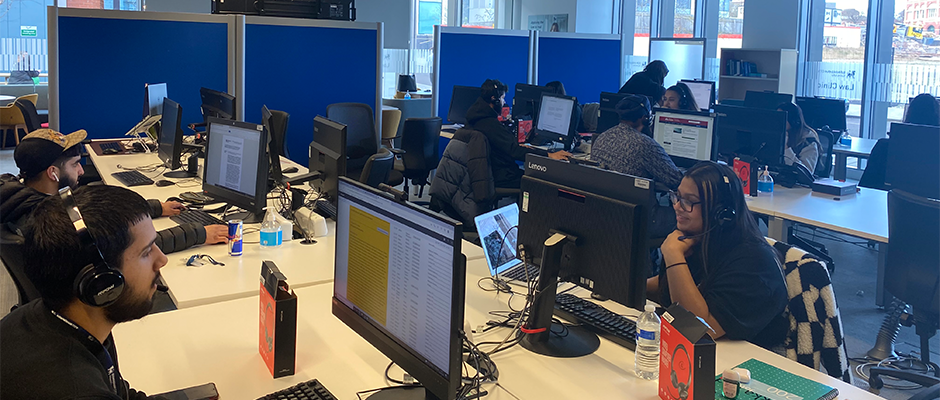When aspiring solicitor, Lauren Moult, completed her LLB in Law with us, staying on to study a postgraduate LLM was a no-brainer. Lauren tells us about her experience completing a placement in our on-site law clinic and how this led to a job offer before she had even finished her studies.
What did you study and how did you get into your chosen area of Law?
After enjoying my three years as a Law undergraduate, I knew I wanted to stay at BCU to complete my LPC and master's – it was the obvious choice!
I had a positive experience at the open day; I knew BCU was the right university for me – it stood out to me as it had many modern facilities, the location within the city centre was great, the course and modules within the degree were interesting and the staff I met on the day were extremely knowledgeable.
Not only do I want to further my education in law, but it’s also mandatory to pass the Legal Practice Course if you wish to pursue a career as a solicitor.
Law Courses
Find out more about our courses
How does having a Law degree help your career?
Law graduates have the sixth highest employment rate in the UK. With a law degree, you gain valuable transferable skills such as research, attention to detail, problem-solving, organisation and time management as well as a wealth of knowledge about the law and different legal processes.
How did BCU help you obtain work and networking experiences?
Networking is a key skill to have when it comes to a career in law; this allows you to develop relationships that could turn into great opportunities later down the line.
BCU has presented me with networking opportunities, including the Law Fair the University hosts. During this event, many law firms come to BCU to discuss careers and promote their company. The University also hosts events where solicitors and barristers come onto campus to talk to students about their journey into law, and their career and give us advice.
There is also a placement module, so you can gain hands-on experience which will help you get a job in law or use these skills for most other job roles. There are many different placement providers you can choose to apply for, for example, there is Support Through Court which is a charity that provides support to litigants in-person (people without legal representation) through the legal system.
You can also apply to the Citizens Advice Bureau which provides advice to individuals on numerous areas such as consumer rights issues and pension and welfare benefits advice.

What did you do on your placement?
My placement was with Support Through Court (STC). I volunteered on both the National Helpline which is run by the law clinic, and the Birmingham office which is based in the Birmingham Civil and Family Justice Centre. My day on the helpline would often involve taking calls and assisting clients with any legal issues they may have. At STC we do not provide legal advice, but we do provide support to people without legal representation, so they do not have to navigate the complex court system alone.
People call the helpline with a range of issues; they can be having a dispute with their landlord or neighbour, they could be suing a cowboy builder who has left their home in a mess, or they could need help completing a witness statement or filling out a court form. Sometimes calls can be very challenging and complex and last over an hour (my longest has been 3 hours!).
The most common issue we see on the helpline is regarding money claims, this is when someone is claiming money they believe they are owed from someone else, or a claim has been made against them saying they owe someone money. Another common issue we help with is childcare arrangements, this is when parents cannot agree on arrangements regarding their children so they wish to take the issue to court so they can get a court order detailing the arrangements.
How did you manage to secure a job for after your studies?
I believe that if it was not for the experience I obtained within the law clinic, I would not have obtained my training contract, where I will work for two years as a trainee solicitor then after these two years, I will be a fully qualified solicitor.
What advice would you give to students trying to get a placement?
Getting experience in the legal industry can be difficult as it is very competitive, there are lots of aspiring solicitors and barristers who are after work experience at different firms and chambers. Training contracts are particularly hard to obtain and experience within the legal industry is something that can make you stand out from the rest. Therefore, making the most out of the law clinic is crucial and is something I encourage all law students to do.
What are your career plans for after your traineeship?
My goal is to move up the ladder from trainee solicitor to solicitor, then senior solicitor and my end goal is then to become a partner within a firm. I would also love to be the head of whichever department I end up practicing in! With each move up the ladder, I will be gaining more responsibility as well as my knowledge developing, and this is something that excites me.
